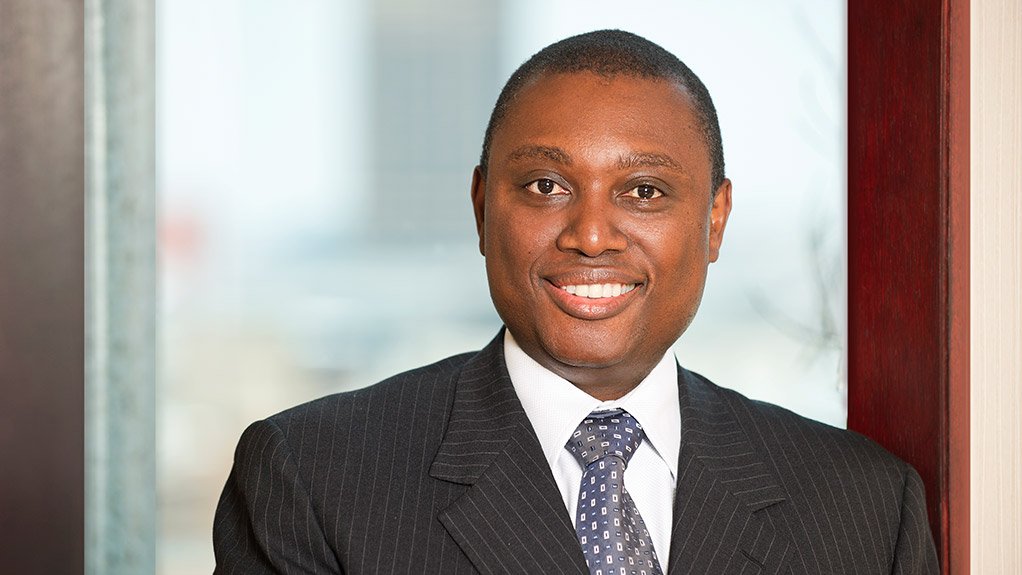Standard Bank’s Tshabalala confident South Africa’s institutions will deliver post-election stability
While refusing to be drawn on what coalition arrangement would be favourable for investment, Standard Bank CEO Sim Tshabalala has expressed confidence in the ability of South Africa’s institutions to navigate the prevailing post-election uncertainty and ensure stability and even a market rally.
Responding to questions following a speech delivered at a S&P Global Ratings conference in Johannesburg, Tshabalala indicated that the outcome of the election, which saw the African National Congress (ANC) slump to 40% of the vote from 57%, had been a scenario to which the bank had assigned a 20% probability ahead of the May 29 poll.
He, thus, questioned the “shock and surprise” that had arisen subsequently. This, even though a 60% probability was attached to a scenario where the ANC would garner between 43% and 47% of the vote, which would have probably been sufficient to enable it to form a coalition government with a handful of small parties.
Speaking against a backdrop of objections and even thinly veiled threats by Jacob Zuma’s Umkhonto Wesizwe Party, which secured more than 14% of the national vote and about 45% of the KwaZulu-Natal provincial vote, Tshabalala said “I do think that will have stability”.
Institutions, including the Electoral Commission of South Africa, were all performing their functions, and while there were challenges to the results, these were being lodged through the correct channels and could be adjudicated in the courts, he argued.
“[South Africa] has had ten elections since 1980. Of those ten elections, eight have been followed by a rally in equities, in the bond market and in currencies and the data supports the view that we may see the same happening this time,” Tshabalala added.
GEOPOLITICAL UPSIDE?
He used his formal address, meanwhile, to outline the upside possibilities for South Africa in a geopolitical context where the US and China “settle into a stable equilibrium of serious – but peaceful – competition”. Such as scenario was not without risk, but was based on indications that both countries were aware of their mutual dependence and the dangers created by their rivalry.
“Sensible middle powers see that a world with two superpowers in stable competition creates more options than a unipolar world,” Tshabalala said, pointing to countries such as France, Germany, Singapore and even Australia as examples of countries also seeking to steer a middle commercial path.
Neither superpower, he argued, was expecting mid-sized neutral countries such as South Africa to sign up as a formal ally.
“In general, when South Africa hews consistently to its usual stance of non-alignment, multilateralism and commitment to human rights, then it is at very little risk of attracting adverse attention from either the United States or China.”
However, the patience and tolerance of superpowers was not infinite and, while recent US Congressional bills and letters on US-South Africa trade relations were unlikely to lead to legislation, they were definite warning signals.
“[Nevertheless], if South Africa continues to make the right policy choices, the current geopolitical setup will favour our economic development, and that of Africa as a whole.
“This is not hot air – our corporate and investment banking pipelines are full of infrastructure projects funded by the US and by China.
“So, all in all, far from being fearful, I think our current geopolitical era creates very exciting prospects for our country and our continent,” Tshabalala concluded.
Article Enquiry
Email Article
Save Article
Feedback
To advertise email advertising@creamermedia.co.za or click here
Comments
Press Office
Announcements
What's On
Subscribe to improve your user experience...
Option 1 (equivalent of R125 a month):
Receive a weekly copy of Creamer Media's Engineering News & Mining Weekly magazine
(print copy for those in South Africa and e-magazine for those outside of South Africa)
Receive daily email newsletters
Access to full search results
Access archive of magazine back copies
Access to Projects in Progress
Access to ONE Research Report of your choice in PDF format
Option 2 (equivalent of R375 a month):
All benefits from Option 1
PLUS
Access to Creamer Media's Research Channel Africa for ALL Research Reports, in PDF format, on various industrial and mining sectors
including Electricity; Water; Energy Transition; Hydrogen; Roads, Rail and Ports; Coal; Gold; Platinum; Battery Metals; etc.
Already a subscriber?
Forgotten your password?
Receive weekly copy of Creamer Media's Engineering News & Mining Weekly magazine (print copy for those in South Africa and e-magazine for those outside of South Africa)
➕
Recieve daily email newsletters
➕
Access to full search results
➕
Access archive of magazine back copies
➕
Access to Projects in Progress
➕
Access to ONE Research Report of your choice in PDF format
RESEARCH CHANNEL AFRICA
R4500 (equivalent of R375 a month)
SUBSCRIBEAll benefits from Option 1
➕
Access to Creamer Media's Research Channel Africa for ALL Research Reports on various industrial and mining sectors, in PDF format, including on:
Electricity
➕
Water
➕
Energy Transition
➕
Hydrogen
➕
Roads, Rail and Ports
➕
Coal
➕
Gold
➕
Platinum
➕
Battery Metals
➕
etc.
Receive all benefits from Option 1 or Option 2 delivered to numerous people at your company
➕
Multiple User names and Passwords for simultaneous log-ins
➕
Intranet integration access to all in your organisation




















